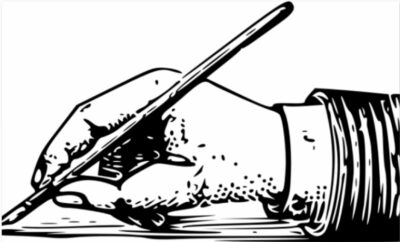
I thought this title of the late 1980’s song made famous by Bobby McFerrin would inspire you to read my column – perhaps more than “Living in the Wreckage of Your Future,” the one I was going to use first!
I heard this expression while discussing anxiety with a friend who is the owner of my favorite bookstore. The topic came up after having just seen a book at the yoga studio where I take classes, the subtitle of which contained “The Age of Anxiety.” I immediately remembered a book I received for Christmas which contained the same term in its subtitle.
So I posed the ever-so-elegant question, “What’s up with THAT?” I continued wondering out loud if The Age of Anxiety was going to be recorded in history like an archaeological period. We had a lively discussion and a good laugh, per usual and “Living in the Wreckage of Your Future” stayed with me as a possible title in that it reflects precisely what we worriers do.
I think most of us are worriers actually. And anxiety appears to be akin to chronic/acute worry. We play out the future in our minds and catastrophize or as C.S. Lewis puts it, we “assume absolutely mercilessly that the worst is true”…or will be. Even when in all likelihood what we have imagined will never happen.
I looked up “worry” in a book I had given my father who loved word and phrase origins. In Old English “worry” meant “to strangle” which evolved into “to harass” and which eventually become synonymous with distress. That is so interesting! To strangle brings to mind how my dear friend and author, Jacquie Bussie defines sin…as something that destroys life. Worry is not only a sin as scripture teaches but an insult to God according to Oswald Chambers – insofar as it reflects our complete lack of trust in Him.
C.S. Lewis writes masterfully about this in The Screwtape Letters in which senior devil “Screwtape” instructs junior devil “Wormword” in the art of temptation. Screwtape to Wormwood: “There is nothing like suspense and anxiety for barricading the human’s mind against the Enemy (God). He wants human beings to be concerned with what they do; our business is to keep them thinking about what will happen to them . . .”
Ruminating over what will happen to us in the future is indeed the birthplace of worry. And I am, admittedly, a worrier – who would like to change one letter and say I am a warrior instead. (Such as is reflected in certain yoga poses.) By participating in yoga I have learned to overcome worry by being mindful – “mindfulness” being defined by former Buddhist monk Andy Puddicombe, as “simply” being in the present moment. He goes on to suggest that the present moment is highly underrated. How true.
I am better at understanding something when I can create a mental picture so here it goes. Mindfulness is when we allow a thought to flow through our mind like a river. The opposite is when the thought gets recirculated, like in a back-eddy or hydraulic on a river, and it gets STUCK. Believe me, I’ve experienced this figuratively…and literally!
There is much that takes us out of the present moment – we live a completely distracted life. We allow ourselves to be distracted – and consumed – by our work, our devices, our thoughts and even by what we are going to say next in a conversation. We get so lost in these things we fail to pay full attention to the person right in front of us (which is, quite possibly, our greatest gift to them) or to our very life, which may just be our greatest gift to God.
My theme for the new year (as opposed to resolution) is discipline, which I had “limited” to my habits of body – eating a more plant based diet and practicing yoga more regularly, but I’ve realized that it is essential to include habits of the mind. To that end I have recently begun a period of time each morning intentionally away from all electronic devices and instead I have been using the time to read and ponder the inspired words of many of the writers / thinkers I quote in this column. (Including Oswald Chambers, C.S. Lewis and Frederick Buechner.)
There are, of course, many tools we can use to “combat” worry – yet I think the most powerful one is not to rely on sheer willpower like I have, but to ask for God’s help. It’s so simple yet so often our last resort. I wonder why that is? Pride? Forgetfulness? A failure to trust in His presence and power? Probably a combination of all three for many of us.
Poet, Mary Oliver, writes: “Things take the time they take. Don’t worry.”
Easier said than done, of course . . . without the greatest tool we have been given – prayer.
Caroline Watkins


